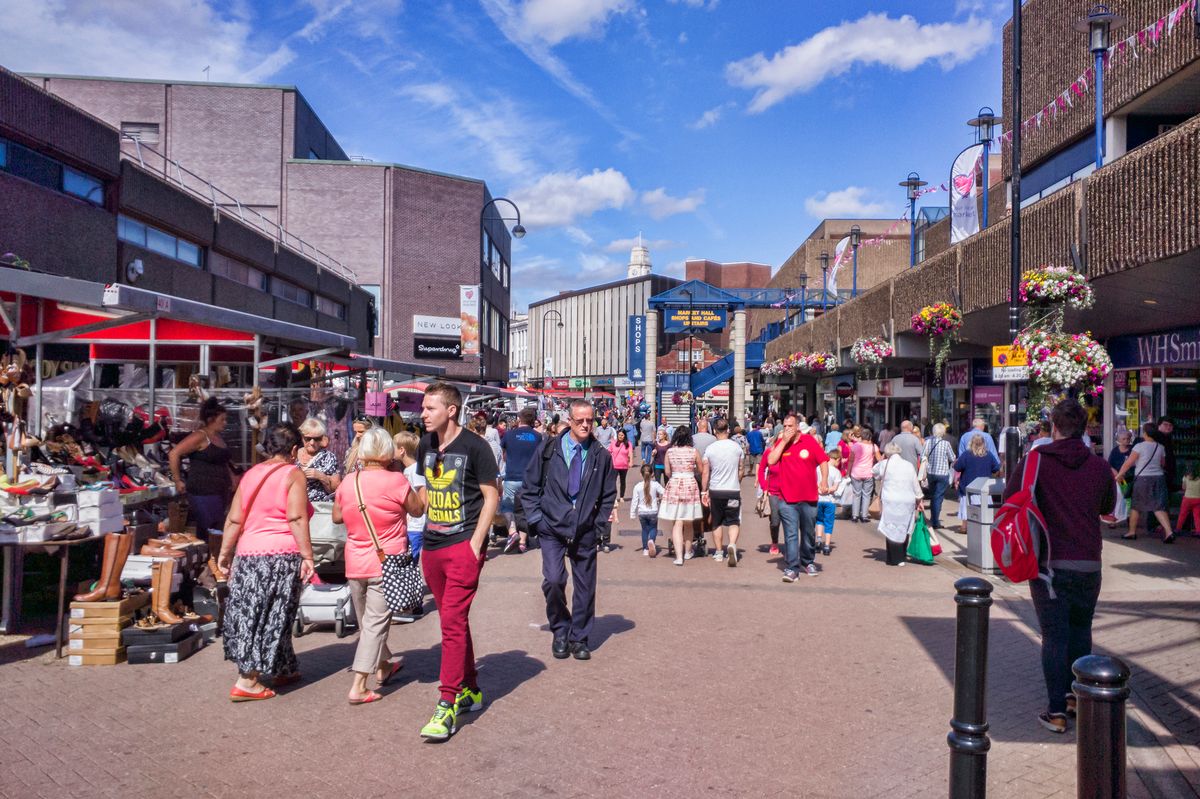Visitors stop by for breakfast, banter and the large market.
“We are the friendliest people on earth. God’s own country.” That’s the bold claim from retired South Yorkshire miner Ralph Chaplin when asked why coachloads of day trippers flock to Barnsley town centre from across the North and even the Midlands.
The chatty 75-year-old, who spent his working life at Grimethorpe Colliery, was more than happy to speak about all things Barnsley to YorkshireLive reporter Andrew Robinson. “We talk to anybody,” he beams. “Even those from the South.” His sole complaint? Drug users, though he’s quick to point out they’re a problem everywhere, not just in Barnsley.
A major draw for the coach trips is the revamped indoor market, nestled within the £220m Glass Works development. Ralph raves about the quality of meat on offer, while upstairs on the second floor sits a bustling food court.
“You’ll get a nice breakfast up there,” he promises. “I visit the town centre once or twice a week,” he continues. “I come into town with my wife. We have a nice walk around. I would rather come here than Meadowhall.”
Upon learning Andrew is visiting from Huddersfield, Ralph reveals his mum’s maiden name was Gorner, and she could trace the family tree back to Huddersfield — though the reason for their departure remains a mystery. The two Yorkshire towns share plenty of similarities, from their coal mining roots to their love of traditional markets.
Folks from villages like Skelmanthorpe, Denby Dale and Shepley regularly bypass Huddersfield altogether, choosing Barnsley for their shopping trips instead.
Barnsley town centre has become a major draw for visitors from Huddersfield and beyond, with thousands arriving on packed coaches from locations as distant as Scarborough, Lincoln and Liverpool.
These day-trippers are set down next to the indoor market, where they’re handed a map and a Barnsley Markets bag to haul their haul back home. Meat and confectionery are apparently the big sellers.
While these excursions have always been well-attended, there’s been a notable boom over the last year, with more than 60 additional coaches now coming from across the country, including Wakefield, Sheffield, Hull, Leeds, Doncaster, Manchester and even Nottingham and Middlesbrough.
Spread across two floors, the market boasts dozens of stalls selling everything from fresh produce and butcher’s cuts to fish, deli goods, flowers, clothes, sweets and much more.
A market worker reveals that visitors can’t get enough of what’s on offer. “There’s lots of friendly banter with the traders, and it is good value for money. You can buy a Barnsley chop (a thick double-sided lamb chop). I see people buying sweets and even carrying rugs under their arms.
“When they are getting back on the coach, they always say they loved it and that they are coming back. We’ve had 65 more coaches in the last year. The coach drivers and the passengers are really looked after.”
Locals from Barnsley reckon the town centre has undergone a massive transformation in recent times. Visitors can now explore a museum charting the area’s history from Roman times through to the present day, browse an art gallery, potter around shops and cafés nestled within the Victorian Arcade, and enjoy a variety of boozers.
The town’s heritage lives on through public sculptures, including one honouring author Barry Hines, inspired by Billy Casper from the 1960s masterpiece Kes.
Derek, flogging Barnsley FC scarves in the town centre, remarked: “They have improved the whole lot. They have spent a lot of money on the market. There are some decent pubs as well — Chennels, The Corner Pin and Wetherspoons (The Joseph Bramah).”
The outdoor market operates five days weekly, with traders setting up at various spots around town. However, one vendor complained that Barnsley town centre had “too many druggies” creating headaches through theft.
Ian, who operates a market pitch, praised Barnsley for having “fantastic footfall” that could compete with many larger towns and cities.
He added: “People here are really positive and are happy to talk. They are nice to be around.”

